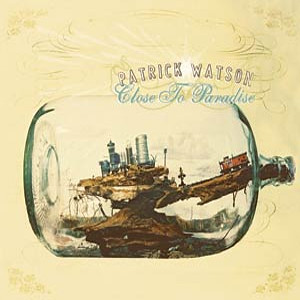 For some reason this past week I found myself thinking about rainbows more than a schoolgirl with CareBear wallpaper.
For some reason this past week I found myself thinking about rainbows more than a schoolgirl with CareBear wallpaper.It all started when my friend Terry and I came to Genesis 9 in our Sunday School class and had to lead a discussion on the significance of the rainbow for God's covenant with the earth.
Then along came news of Radiohead's new album "In Rainbows", which you can download and name your own price. Unfortunately I thought 3 pounds was about 5 dollars but it turns out it is more like 8. Doesn't matter, I've heard it now and still think I got a pretty good deal. It isn't a great album, but it is enjoyable. It isn't as much of a departure as their last few albums, which should please those who find them hard to catch on to, and which is just fine with me since I haven't grown tired of the niche they've already carved.
What the title is about I don't know. But upon reflection Terry and I discovered that there can actually be quite a lot in a rainbow besides a varied prism and a realm of unicorns and lepricons.
Consider the following:
- When God put the rainbow in the sky it was more to remind Himself of his promise not to destroy the earth with a flood again, not us. (Check Genesis 9 if you don't believe me). It reminds me of that scene in Apollo 13 when Kevin Bacon puts a sticky note on the button which could eject the other astronauts into space and ensure his own safe return to earth. The sticky note said "NO!" In this case, God's sticky note is a glorious array of colour and light which for all intents and purposes says "IN SPITE OF EVIL, DO NOT DESTROY!"
- The rainbow has for some reason been chosen as the symbol for Gay Pride. Not sure why but it's interesting anyway.
- Terry dug up another interesting thought. The rainbow is a bow. I never really thought about it but we're not talking about the kind of bow you put on a Christmas present but the sort which is used to shoot an arrow. Where is this bow facing? To heaven. And strangely, the bow is pretty relaxed. Not stretched like it is shooting but in the posture of peace. How 'bout that.
- Why all the beauty and colour? Was this not around before the flood? It appears it was not the kind of environment conducive to rainbows pre-flood. What changed? And isn't it interesting that the sign God chooses is one so incredible and universal, rather than some monument of rocks only visible to one tribe for a limited time. Or some word in some language that only a few can understand. Rather than that it is a symbol which everyone for all time gets to gawk at and get stirred by. It's almost like the sticky note says, "THERE IS SOMETHING LEFT TO LIVE FOR."
- Intriguing that the rainbow always follows the rain. You have to go through some dark clouds to get to it.
- Also very telling that you can never touch the rainbow. It is always moving further away, no matter how much you try. Whatever is left worth living for is something which can not yet be had in its fullness. For all our grasping we do not yet find satisfaction. Only through a glass darkly (a prism perhaps?) can we hold it for now.
- Just imagine what it would be like to be "in rainbows". I don't know if that's what Radiohead is trying to evoke, but it is a mindboggling thought, all things considered. Once you get past all the unicorns and lepricons of course.



